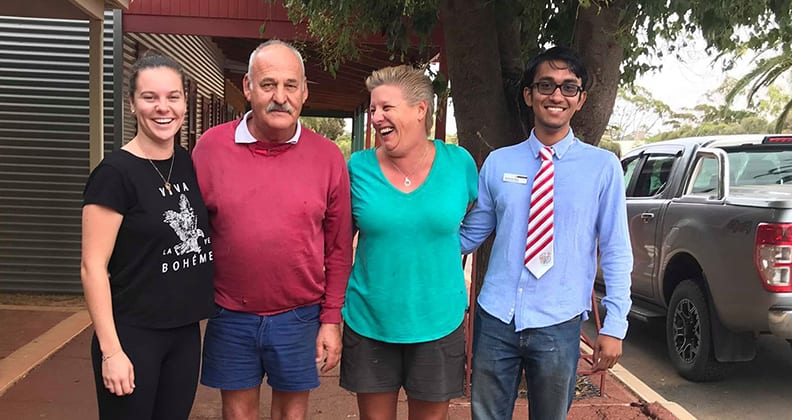
In March of this year, a group of 160 medical students from Curtin Medical School and the University of Notre Dame embarked on a journey to Western Australia’s Wheatbelt region. This rural immersion program aimed to provide these future doctors with a firsthand experience of the realities and challenges of healthcare in remote areas. Tess Corbett, a second-year Bachelor of Medicine, Bachelor of Surgery student at Curtin, found the experience both inspiring and eye-opening.
The Wheatbelt Medical Student Immersion Program (WBMSIP) offers students a unique opportunity to engage with rural health through hands-on experiences, living with host families, and participating in local activities. This initiative aligns with Curtin Medical School’s mission to produce doctors equipped to work in areas of unmet need, particularly in rural and remote regions.
Experiencing Rural Life in Westonia
Tess was placed in Westonia, a small town approximately 300 kilometers east of Perth, known for its open spaces and vibrant wildflowers. With a population of around 300, the town offered Tess a glimpse into rural life that she had never experienced before.
“I traveled to Westonia with one other Curtin student and four Notre Dame postgraduate medical students. My experience in Westonia was overwhelmingly positive; I was able to meet so many wonderful people and see so many aspects of rural life that were unlike anything else I have experienced before,” Tess shared. “After my few days in the town, I felt like I became very involved in the community and I think I got a real taste of what it was like living in such a small town.”
“One of the best parts of the trip was staying with my billet family. Both myself and my student partner became very attached to our ‘parents’ and we still regularly contact them and intend on visiting one day soon.”
Challenges of Rural Healthcare
According to a 2016 report by the Australian Medical Association, Australians living in rural and remote areas face significant disadvantages in accessing healthcare. These inequalities result in lower life expectancy and poorer health outcomes compared to urban residents.
This ‘rural disadvantage’ was something Tess experienced firsthand. Although she grew up in Sydney and frequently visited rural New South Wales, she was struck by the stark differences in healthcare access between rural NSW and WA.
“The disparity in access to health services between Perth and Westonia was far larger than I had anticipated,” Tess noted. “The worst part of the trip, aside from having to leave Westonia at the end, was the day trip to Merredin. We visited the hospital, primary school, and St John Ambulance precinct. I found it quite frustrating to see the lack of healthcare provided, and also the poor amount of support provided to the health workers.”
“What shocked me was that the ambulance officers are entirely volunteers and have to balance other jobs and family commitments without receiving any financial support for their efforts.”
Insights from Fly-In/Fly-Out Healthcare
Many rural towns, including Westonia, rely on fly-in/fly-out (FIFO) healthcare workers. The WBMSIP allowed students to work alongside General Practitioners, providing invaluable insights into rural medical practice. Tess spent a day with Dr. Olga Ward, a FIFO GP in Westonia, which she found illuminating.
“Spending a day with Dr. Ward was incredible; she made a real effort to show us a variety of things she gets to do as the FIFO GP in Westonia,” Tess recounted. “We got to watch and perform an ultrasound on a pregnant patient, sit in on two telehealth consultations, watch biopsies and sutures, and hear from the wife of a cancer patient.”
“What stood out the most was the need for the local doctor to be a ‘Jack of all Trades’ with a versatile and broad skill set. The lack of funding to the doctor meant she had to be incredibly resourceful and adaptable when treating patients.”
Inspiration for a Career in Rural Medicine
For Tess, the experience in Westonia reinforced her passion for medicine and inspired her to consider a career in rural healthcare. “For as long as I can remember, a career in medicine has been a goal of mine,” she said. “This aspiration was sparked when I was young and watched the challenges some of my family members faced in seeking healthcare in a rural setting.”
The WBMSIP, a collaboration between Curtin Medical School, Rural Health West, the WA Primary Health Alliance, and several local shires, has left a lasting impact on students like Tess. It has not only provided them with practical experience but also highlighted the critical need for dedicated healthcare professionals in rural areas.
As Tess continues her medical education, the lessons learned in Westonia will undoubtedly influence her future career choices, potentially leading her to a rewarding path in rural or remote medicine.





